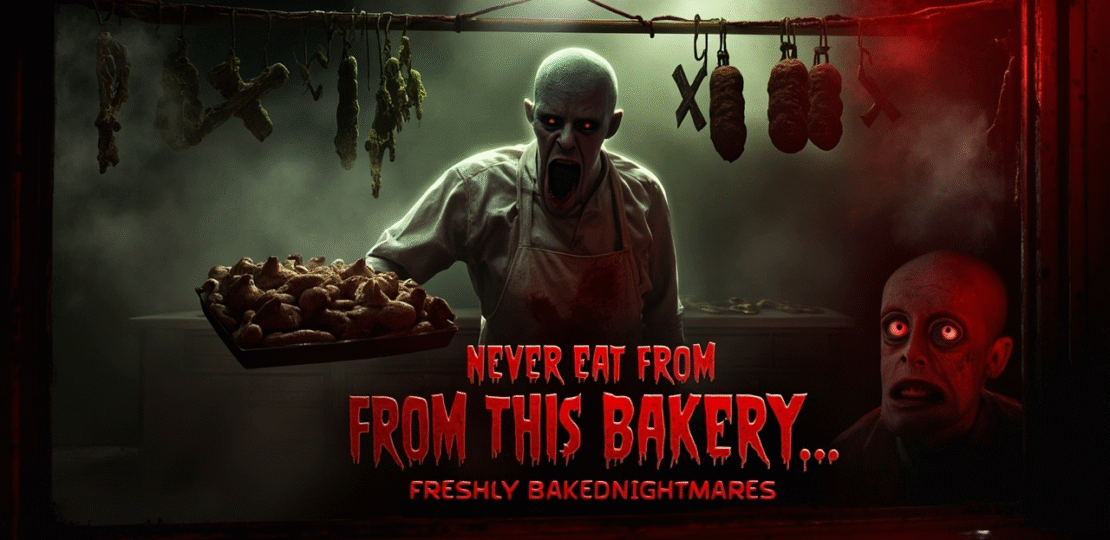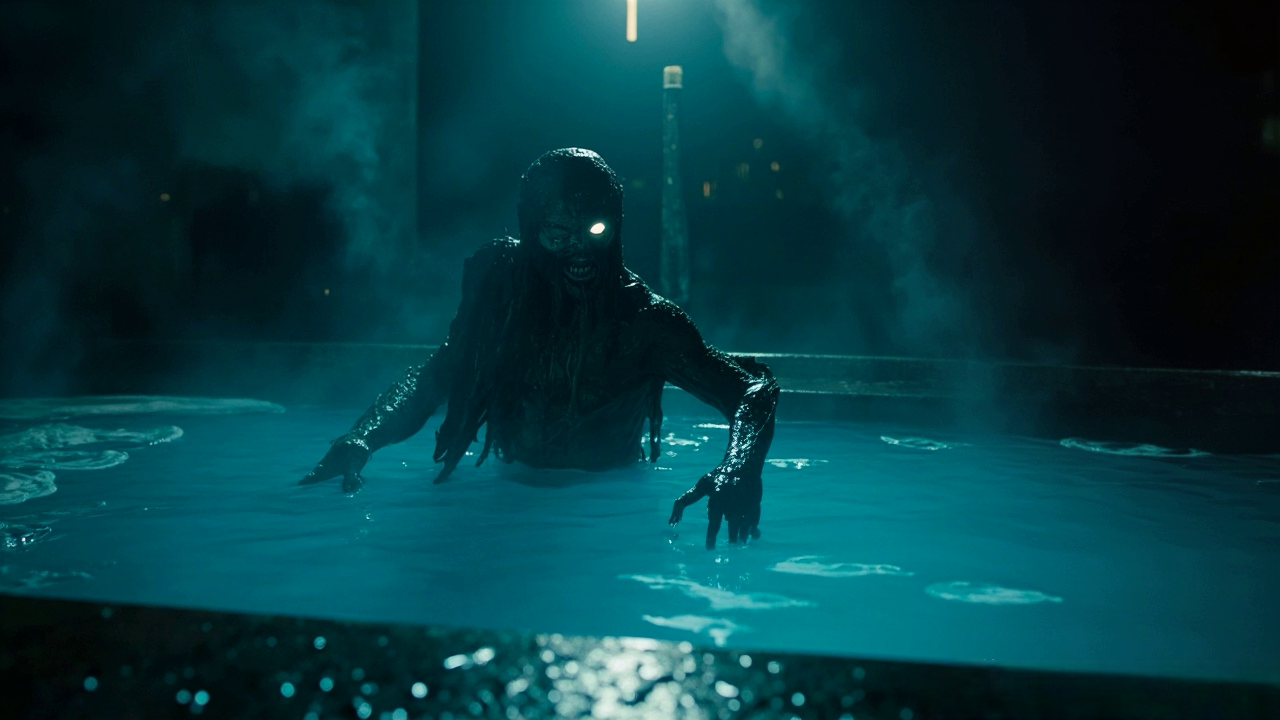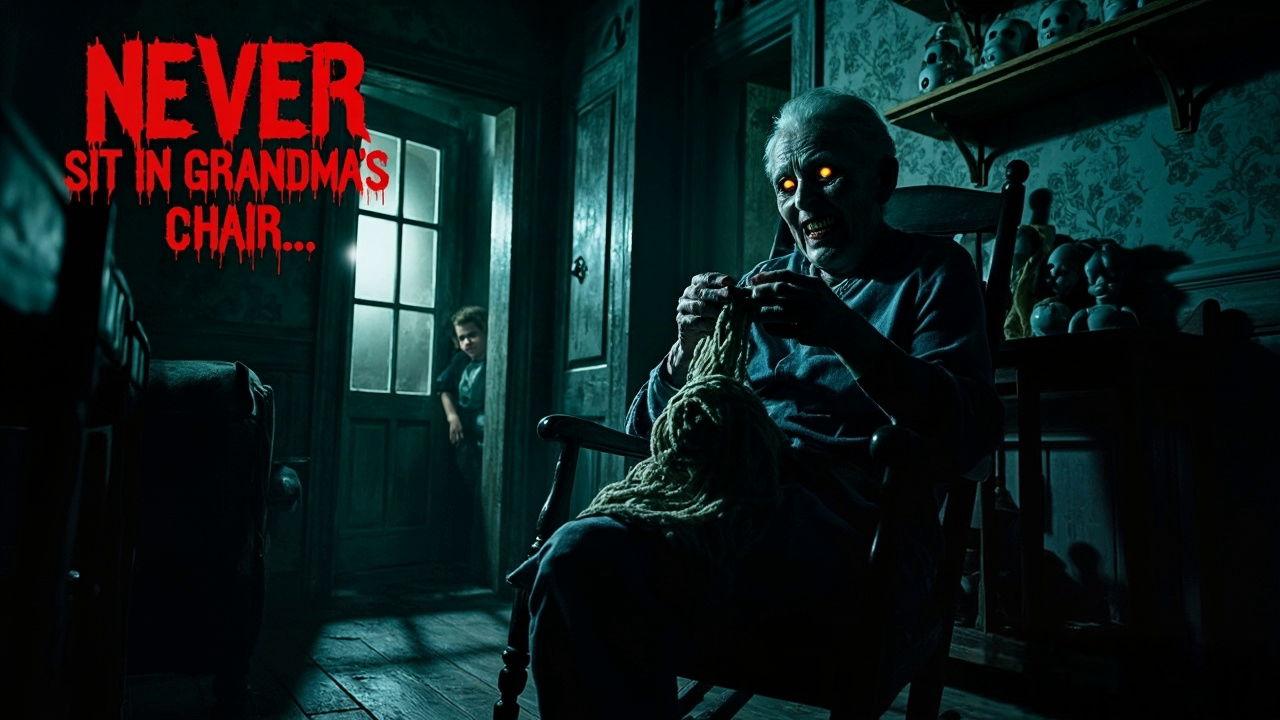
It started with the smell—warm, sweet, buttery, and impossible to ignore.
Every morning, as I walked past the old brick building on my way to work, the scent of fresh-baked bread drifted into the air like a siren song. But that was the strange part: the bakery had been closed for years. “Gustav’s Bakeshop”, the faded sign read, hanging crookedly above boarded windows. Locals always avoided it, muttering about permits and pest issues. But I never saw rats, never saw mold—just that mouthwatering scent, stronger than anything I’d ever smelled in a real bakery.
One morning, I paused.
The door, usually nailed shut, was open just a crack.
I probably should have kept walking. But hunger mixed with curiosity is a powerful thing. I pushed the door gently. It creaked open, revealing a dim interior. Dust coated every surface, but the counters gleamed beneath it, and the display cases—though empty—looked recently cleaned.
Behind the counter stood a man.
He was tall, lean, dressed in a flour-covered apron. His white shirt was rolled at the sleeves, and his skin was pale—too pale, like someone who hadn’t seen sunlight in years. His hair was slicked back and silver, and his eyes were cloudy, almost gray.
“Welcome,” he said, smiling faintly. “You must be hungry.”
I froze. “Are you… open?”
“Only for those who are meant to enter,” he replied cryptically. “We don’t serve everyone.”
I should’ve left. But the hunger, the scent—it pulled at something deep inside me. I found myself nodding.
“I—just something small,” I said. “A roll, maybe.”
He turned without another word and walked into the back. The kitchen door swung behind him, releasing an even richer aroma. Something about it was wrong, though. Sweet, yes—but with an undertone of iron, like rust. Or blood.
He returned moments later with a paper bag. Warmth seeped through it. I took it hesitantly, handed him a few dollars, though there was no register. He didn’t count it. Just smiled.
“Be careful,” he said, tilting his head. “Our pastries… leave a lasting impression.”
I left in a daze, walking to the office with the bag in hand. I wasn’t even sure what he gave me. I sat at my desk and opened it. Inside was a single, perfect croissant. Golden, flaky, steaming.
One bite, and I swear, time stopped.
It melted in my mouth. Layers of butter, a hint of almond, and something else—something… addictive. I ate the entire thing without thinking. The bag was empty before I even blinked. My coworkers asked where I got it. I shrugged and just said, “A new place.”
That night, I couldn’t sleep. My stomach growled like it was hollow, though I had eaten dinner. I dreamed of ovens and kneading dough with hands that weren’t mine. When I woke, the taste of the croissant lingered on my tongue.
I went back the next day.
The door was open wider this time. The same man stood behind the counter, his apron darker now, stained with something that looked more like wine—or blood.
“I knew you’d return,” he said.
“I just want another one,” I mumbled, ashamed of how desperate I sounded.
This time he handed me a small cake, wrapped in parchment.
“Eat it alone. In silence,” he said, eyes glinting.
I nodded.
At home, I followed his instructions. I sat in silence and unwrapped the cake. The smell was stronger now—intoxicating. It was denser than expected, with a rich, dark filling.
The moment I bit into it, visions flooded my mind.
A dim room. A basement. Tables lined with bones. Ovens roaring. Screams muffled behind steel doors. And in the center—him, kneading dough with red-stained hands.
I choked and dropped the cake. But I had eaten more than I realized. My head spun. I blacked out on the kitchen floor.
I woke up hours later with flour on my clothes and a butcher’s knife in my hand.
My cat was missing.
I told myself I had a bad reaction. Food poisoning. A weird dream.
But I still went back.
It was like my body moved on its own. I needed more. The third time I visited, the bakery was… different. Cleaner. Brighter. There were shelves filled with breads and pies. No customers, but the shelves were full.
The man greeted me with a warm nod. “You’re ready for something special.”
He handed me a long baguette wrapped in butcher paper. The red spot soaking through it wasn’t grease.
“Do you… use real meat?” I asked, half-joking.
His smile widened. “Only the finest cuts. Our ingredients are… intimate.”
I should’ve walked out. Called the police. But I left with the bread.
At home, I didn’t eat it. I tried to throw it away—but every time I did, it reappeared. On the table. On my bed. In the fridge.
One night, I woke to chewing sounds in my kitchen. I crept downstairs and saw myself—chewing the bread, blank-eyed, blood dribbling down my chin.
I screamed.
But my mouth didn’t move.
I was watching myself from the hallway mirror.
And when I blinked—just once—I was back in my body, the loaf half-eaten in my lap, my hands shaking.
That’s when I knew something had changed.
Every day after, I noticed my teeth looked sharper. My skin paler. I stopped craving normal food. Only bread. Only pastries. Only his.
And the dreams got worse. I saw people—neighbors, coworkers—tied up in the bakery’s basement. Some were alive. Some were not. And each time, I saw myself watching, helping, kneading flesh into dough.
I tried to stop going. I locked my doors. Shut my windows.
But he came anyway.
One morning, the smell drifted into my apartment.
From the inside.
I followed it to my kitchen, where a fresh pie sat on the counter. Steam rose from its crust. No note. No explanation.
I threw it out.
The next morning, two pies.
Then three.
Soon, I was waking up in flour-covered sheets. My hands smelled of yeast and meat. I started finding teeth in my garbage disposal. I didn’t know whose.
And then came the whispers.
From the walls.
From the pipes.
From my mouth, when I wasn’t speaking.
“Feed the oven.”
“Knead the flesh.”
“Bake the soul.”
I snapped.
I went to the bakery with a knife. Determined to end it.
But it was gone.
Just a charred foundation. Police tape. Ashes.
I asked around. An old woman at the corner shop told me it burned down in 1999. Gas leak. Total loss. The owner, Gustav, was never found. Rumors said he had been baking “unusual things.” But no one ever proved it.
I went home in shock.
But on my kitchen counter was a loaf of bread, still warm, with a note:
“Congratulations, Baker. The shop is yours now.”
The walls of my apartment began to shift. Oven doors opened where cabinets used to be. My fridge hummed with the sound of kneading. And in the mirror, I no longer saw myself—but a pale man with silver hair and cloudy eyes.
The hunger is unbearable now.
I wait each night for a knock at the door.
A stranger.
Someone hungry.
Someone curious.
Because I have flour. I have dough. I have the oven.
All I need…
…is the next ingredient.
RELATED POSTS
View all



